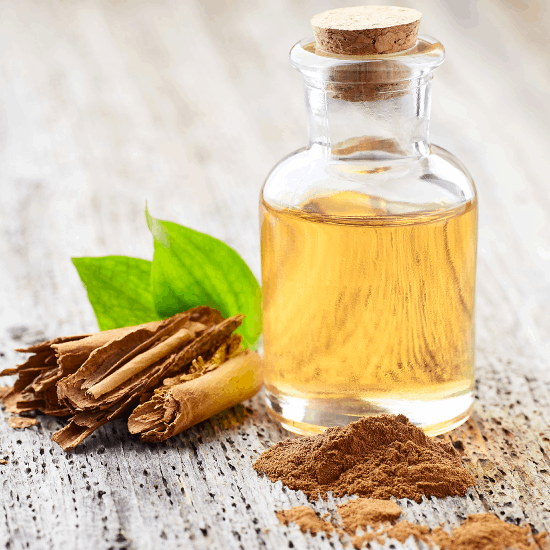
Cinnamon Bark Oil
Cinnamon bark oil, derived from the bark of the Cinnamomum verum tree, is celebrated for its rich, warm, and spicy aroma, making it a favorite in both aromatherapy and the flavoring of various culinary creations. Beyond its inviting scent and taste, cinnamon bark oil is prized for its potent antibacterial, antifungal, and antiviral properties. It contains high levels of cinnamaldehyde, the compound responsible for most of its health benefits, including promoting circulation, reducing inflammation, and aiding in metabolic function. However, due to its potency, it should be used with caution and diluted properly to avoid skin irritation.






